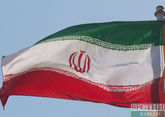For decades Saudi leaders expressed in vituperative fashion an animus to the state of Israel as an illegal entity in what is assumed to be Arab land. While King Salman reaffirmed a steadfast position on the Palestinian issue and the legitimate rights of the Palestinian people to Jerusalem as their capital, he made an astonishing claim that the Jewish people have a right to a “nation state in at least part of their ancestral home.”
Herbert London, president of the London Center for Policy Research, reports in his article A fresh wind in the Middle East for The Washington Times that on its face this may not seem as much, but based on commentary over the last 70 years this comment is extraordinary. Saudi Arabia, birthplace of Islam and home of its holiest shrines, does not recognize Israel. It has maintained that normalization of relations is dependent on Israeli withdrawal. While there are many conditions that have changed, arguably the most notable is the tension between Riyadh and Tehran that has fueled speculation Saudi Arabia and Israeli interests overlap. Both fear the Iranian imperial goal of a Shia Crescent, a land mass from Tehran to the Mediterranean that includes Syria and Lebanon.
Recently, Prime Minister Benjamin Netanyahu said that the inauguration of Air India flights to Israel over Saudi Arabia creates “huge potential” for the future. Moreover, through back channels Saudi leaders continually consult with Israeli forces on the logistics necessary to thwart Iranian goals. It has also been reported that Israel’s Iron Dome or some version of it will be sold to Saudi Arabia to deal with Houthi-launched missiles into Riyadh that undoubtedly have an Iranian signature on them. The attention given Crown Prince Mohammed bin Salman has to some degree overlooked the important role of its Egyptian partner. For decades Egypt has maintained a peace treaty with Israel, even going so far as attempting to broker a peace arrangement between Hamas and Israel in the last war. Egyptian President Abdel Fattah el-Sisi has made it clear that he will stand with Israel on border issues as well, notwithstanding internal criticism.
Cooperation between Egypt and Israel over the war in the Sinai against surrogates for terrorist organizations is a barely concealed secret. In fact, one of the regrets I have with the Trump administration is that after the Riyadh speech in which the president vigorously outlined a defense pact led by Egypt and Saudi Arabia to counter Iranian goals, there has been little follow-through.
One might even argue that the cut in foreign aid to Egypt (supposedly introduced by an Obama holdover at the State Department) has reduced American influence and prestige in Egypt. This issue might well be corrected, but the restoration of confidence won’t be easy. Perhaps a Trump-led delegation to Cairo for a couple of days would be the appropriate curative gesture.
Alas, the world does turn very often in directions that cannot be anticipated. The idea of Saudi-Israeli military co-operation in itself is enough to constitute a miracle. Where this will lead is anyone’s guess. One thing is certain, as long as Iran is a military threat cooperation between Israel and its Sunni neighbors is likely. The other wild card is an Iran in possession of nuclear weapons. Should that happen proliferation would become very difficult to stop. As the Saudi crown prince noted, “if the Iranians have them, we should as well.”
Remarkably, a splinter of a nation with merely 8 million people has become the fulcrum on which all decisions turn.










